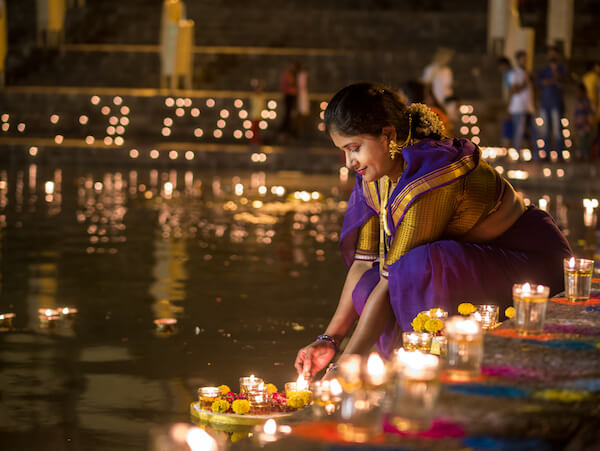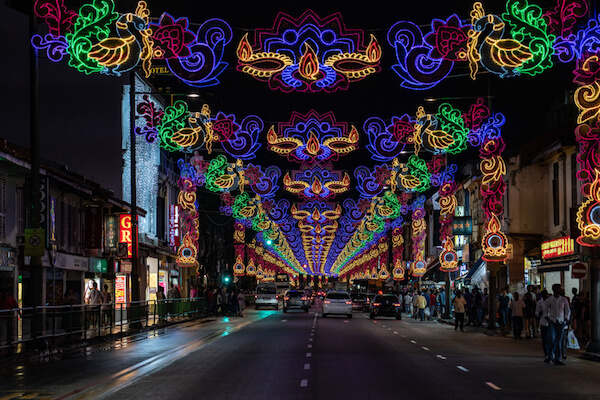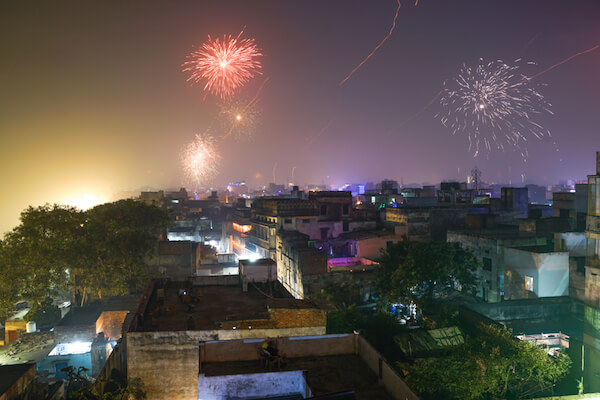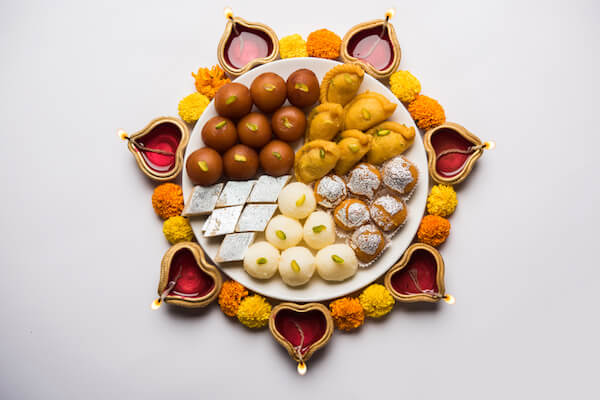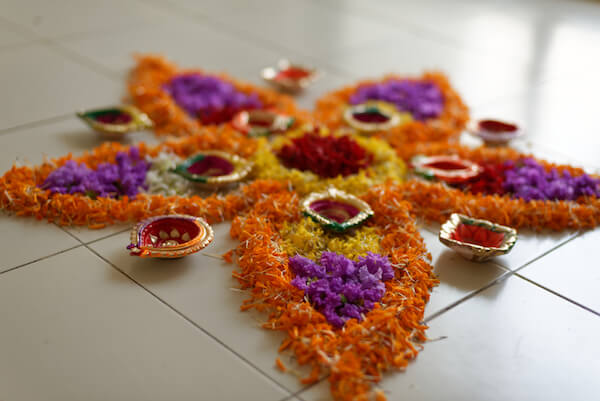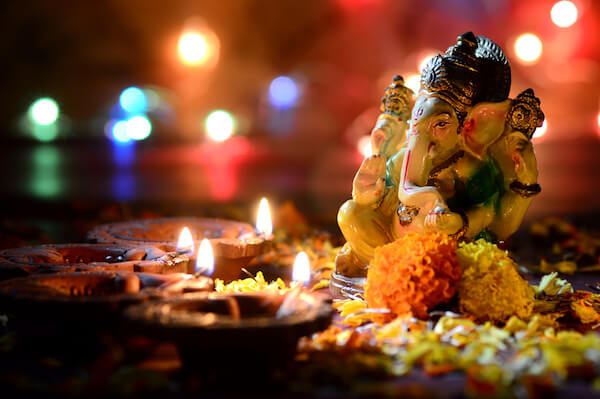In Malaysia we are brought up to celebrate all festivals and respect all religions. Its one of the unique values that we have had, that we should hold on to.
Being in a multi-racial society, every festive holiday is usually celebrated together no matter whether it is Hari Raya, Chinese New Year, Deepavali or Christmas. The day is usually spent visiting relatives or entertaining neighbors and friends in your home.
During Deepavali there is a small misconception that needs to be cleared. Not all Malaysians of Indians descent celebrate ths Festival of Lights, as some of them are Christians who celebrate Christmas, ..... just like not all Indian's Celebrate Christmas as some of them are Hindu and thus celebrate Deepavali.
If your Indian friend has a Western sounding name like George, Matthew, Anthony or Elizabeth, he/she is most likely a Christian who celebrates Christmas.
If he has an Indian sounding name like Mohan, Ramasamy, Ravi, Siva or Radha he/she most likely is a Hindu and celebrates Deepavali.
HAPPY DEEPAVALI / DIWALI TO ALL WHO CELEBRATE!!!
BEST FBKL
Diwali (English: /dɪˈwɑːliː/; Deepavali (IAST: dīpāvalī) or Divali) is a Hindu religious festival of lights and is one of the most important festivals within Hinduism.
The festival usually lasts five days, or six in some regions of India, and is celebrated during the Hindu lunisolar month Kartika (between mid-October and mid-November) One of the most popular festivals of Hinduism, Diwali symbolizes the spiritual "victory of light over darkness, good over evil, and knowledge over ignorance".
The festival is widely associated with Lakshmi, goddess of prosperity and Ganesha, god of wisdom and the remover of obstacles, with many other regional traditions connecting the holiday to Sita and Rama, Vishnu, Krishna, Durga, Shiva, Kali, Hanuman, Kubera, Yama, Yami, Dhanvantari, or Vishvakarman. Furthermore, it is a celebration of the day Rama returned to his kingdom in Ayodhya with his wife Sita and his brother Lakshmana after defeating the demon Ravana in Lanka and serving 14 years of exile.
In the lead-up to Deepavali, celebrants prepare by cleaning, renovating, and decorating their homes and workplaces with diyas (oil lamps) and rangolis (colorful art circle patterns).
During Diwali, people wear their finest clothes, illuminate the interior and exterior of their homes with diyas and rangoli, perform worship ceremonies of Lakshmi, the goddess of prosperity and wealth, light fireworks, and partake in family feasts, where mithai (sweets) and gifts are shared.
Originally a Hindu festival, Diwali has transcended religious lines and is also celebrated by Jains and Sikhs, It is a major cultural event for the Hindu, Sikh, and Jain diaspora.
The five-day long festival originated in the Indian subcontinent and is mentioned in early Sanskrit texts. Diwali is usually celebrated twenty days after the Vijayadashami (Dussehra, Dasara, Dashain) festival, with Dhanteras, or the regional equivalent, marking the first day of the festival when celebrants prepare by cleaning their homes and making decorations on the floor, such as rangolis.
Some regions of India start Diwali festivities the day before Dhanteras with Govatsa Dwadashi. The second day is Naraka Chaturdashi. The third day is the day of Lakshmi Puja and the darkest night of the traditional month. In some parts of India, the day after Lakshmi Puja is marked with the Govardhan Puja and Balipratipada (Padwa). Some Hindu communities mark the last day as Bhai Dooj or the regional equivalent, which is dedicated to the bond between sister and brother, while other Hindu and Sikh craftsmen communities mark this day as Vishwakarma Puja and observe it by performing maintenance in their work spaces and offering prayers.
Some other faiths in India also celebrate their respective festivals alongside Diwali. The Jains observe their own Diwali which marks the final liberation of Mahavira,
The Sikhs celebrate Bandi Chhor Divas to mark the release of Guru Hargobind from a Mughal prison,
While Newar Buddhists, unlike other Buddhists, celebrate Diwali by worshipping Lakshmi, while the Hindus of Eastern India and Bangladesh generally celebrate Diwali by worshipping the goddess Kali.
The main day of the festival of Diwali (the day of Lakshmi Puja) is an official holiday in Fiji, Guyana, India, Malaysia, Mauritius, Myanmar, Nepal, Pakistan, Singapore, Sri Lanka, Suriname, and Trinidad and Tobago.
Our enlightening Diwali Facts will tell you about the colourful 'Festival of Lights'
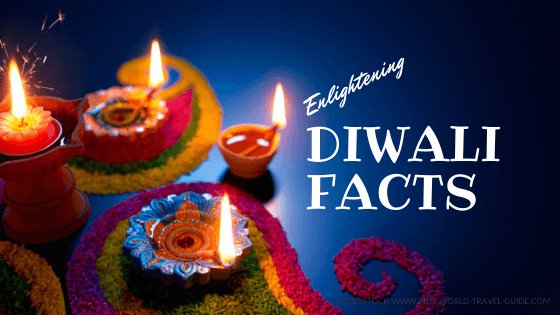
10 Diwali Facts
1. Diwali is the most important religious festival celebrated by followers of Hinduism. It is also called Diwali, Divali, Deepavali or Deepawali and is commonly referred to as the Festival of Lights.
2. The Festival of Lights celebrates the Hindu New Year. It is a celebration of the victory of light over darkness and the triumph of good over evil.
3.This festival can last up to five days. Diwali takes place every year in late October or early November depending on the cycle of the moon. The festival starts two days before the new moon comes up.
In 2022, The main celebrations take place on 24 October 2022.
4. The name Deepavali originates from the ancient Indian Sanskrit language and means 'row of lights'. 'Dipa' means 'Light' and 'avali' is the word for ‘row’.
5. There are various legends that refer to the festival. They traditionally involve the Hindu gods Rama, Lakshmi or Krishna. They all celebrate the victory of the good over the evil and this festival is a celebration of hope, happiness and peace.
6. Originally Diwali was celebrated as a harvest festival in India, but today Diwali is celebrated as the Festival of Light by Hindus all over the world.
This festival is celebrated with sparklers, firecrackers and fireworks are held in many places.
7. At Diwali it is tradition to decorate and illuminate the homes, visit the local temple for prayers and share meals with families and friends. Children get small gifts and sweets. Traditional Diwali food includes sweets such as the delicious syrupy gulab jamun balls and other Indian sweets displayed below.
8. Lighting candles, oil lamps and sparklers are the main customs at this festival. Indians light diyas which are candleholders or clay lamps that are used for decoration.
Homes and buildings are also decorated with rangoli decorations made with flowers, coloured sand or even coloured rice, flour or spices.
9. Statues of Lakshmi, the four-armed Hindu goddess of prosperity, and of Ganesha, the Hindu lord of success usually referred to as the 'Elephant God', are also cherished and decorated with flowers in many homes.
10. Larger Diwali celebrations outside India take place in Malaysia, Singapore's Little India district as well as in London and Leicester / UK, Sydney/Australia and Toronto/Canada where some main roads are decorated with lights and the Hindu community gathers and showcases Indian traditions, crafts and Indian food at fairs and festival grounds.
Sikhs, Jains and Buddhists also celebrate the new year with a festival of light on these dates but have different legends and traditions referring to the event.
https://www.kids-world-travel-guide.com/


